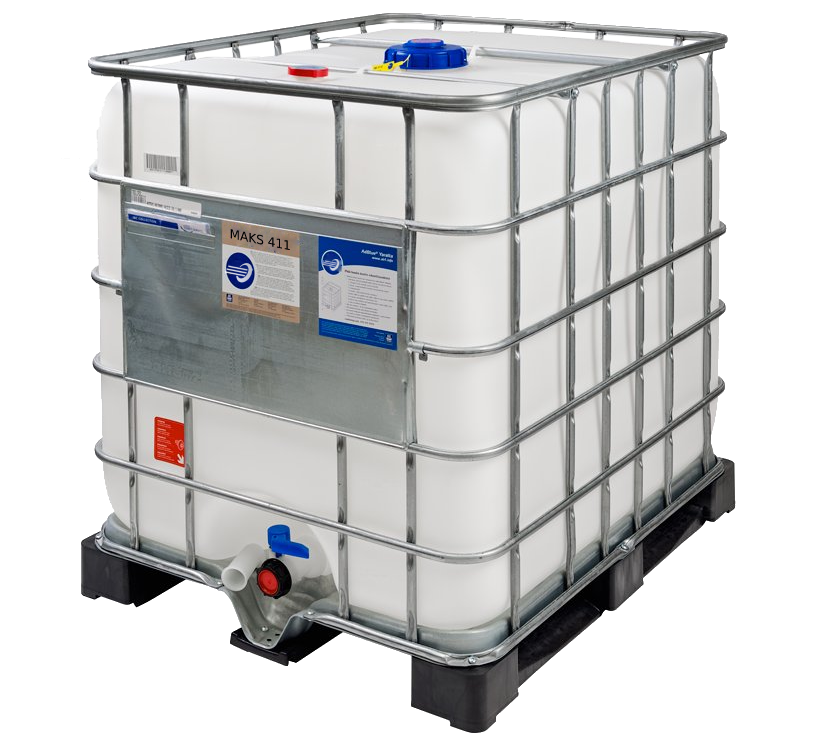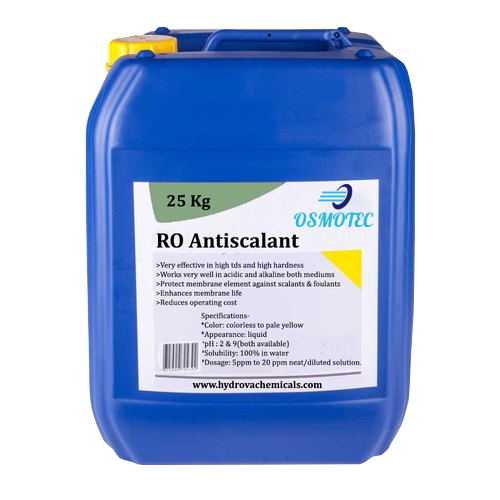Whether you’re from a municipal organization that must produce large volumes of clean water, or from an engineering firm that wants to design reverse osmosis systems to operate at higher recoveries, or from an industrial operation, OSMOTEC can provide the right antiscalant that will be cost effective and will prevent mineral scaling of your membranes.
Condensate Treatment
Chemicals for Boilers

products
OSMOTEC Chemical’s solution team offers PermaTreat antiscalant products for different types of scale.
M 400P
- Description: Effective against Calcium Carbonate, Calcium Sulfate & Iron (NSF Certified)
- Dosage Rate: 2 – 6 ppm
Dosing Point: RO Field line before cartridge filters
- Preventing the need to replace expensive membranes prematurely
- Maintaining efficient plant operation at the highest possible recovery
- Eliminating or reducing the use of hazardous acids
- Reducing water consumption by safely operating at high recovery rates
- Using fewer chemicals
- Producing less concentrate, and allowing for better environmental acceptance of that concentrate
- Reducing energy costs
- Reducing the downtime caused by frequent membrane cleanings

M 401
- Description: Effective for High calcium & Silicate Feedwater
- Dosage Rate: 2 – 6 ppm
Dosing Point: RO Field line before cartridge filters
- Preventing the need to replace expensive membranes prematurely
- Maintaining efficient plant operation at the highest possible recovery
- Eliminating or reducing the use of hazardous acids
- Reducing water consumption by safely operating at high recovery rates
- Using fewer chemicals
- Producing less concentrate, and allowing for better environmental acceptance of that concentrate
- Reducing energy costs
- Reducing the downtime caused by frequent membrane cleanings

M 411
- Description: Highly effective antiscalant across all water types (for small RO units <120m3/day)
- Dosage Rate: 5 – 15 ppm
Dosing Point: RO Field line before cartridge filters
- Preventing the need to replace expensive membranes prematurely
- Maintaining efficient plant operation at the highest possible recovery
- Eliminating or reducing the use of hazardous acids
- Reducing water consumption by safely operating at high recovery rates
- Using fewer chemicals
- Producing less concentrate, and allowing for better environmental acceptance of that concentrate
- Reducing energy costs
- Reducing the downtime caused by frequent membrane cleanings

M 412
- Description: Effective against microbiological contamination and mineral deposits (New Antiscalant including Biocide)
- Dosage Rate: 10 – 25 ppm
Dosing Point: RO Field line before cartridge filters
- Preventing the need to replace expensive membranes prematurely
- Maintaining efficient plant operation at the highest possible recovery
- Eliminating or reducing the use of hazardous acids
- Reducing water consumption by safely operating at high recovery rates
- Using fewer chemicals
- Producing less concentrate, and allowing for better environmental acceptance of that concentrate
- Reducing energy costs
- Reducing the downtime caused by frequent membrane cleanings

M 420
- Description: Effective Silica & Calcium Salts Antiscalant in all types of water
- Dosage Rate: 1 – 4 ppm
Dosing Point: RO Field line before cartridge filters
- Preventing the need to replace expensive membranes prematurely
- Maintaining efficient plant operation at the highest possible recovery
- Eliminating or reducing the use of hazardous acids
- Reducing water consumption by safely operating at high recovery rates
- Using fewer chemicals
- Producing less concentrate, and allowing for better environmental acceptance of that concentrate
- Reducing energy costs
- Reducing the downtime caused by frequent membrane cleanings

M 430
- Description: Special for seawater treatment
- Dosage Rate: 0.2 – 2 ppm
Dosing Point: RO Field line before cartridge filters
- Preventing the need to replace expensive membranes prematurely
- Maintaining efficient plant operation at the highest possible recovery
- Eliminating or reducing the use of hazardous acids
- Reducing water consumption by safely operating at high recovery rates
- Using fewer chemicals
- Producing less concentrate, and allowing for better environmental acceptance of that concentrate
- Reducing energy costs
- Reducing the downtime caused by frequent membrane cleanings
